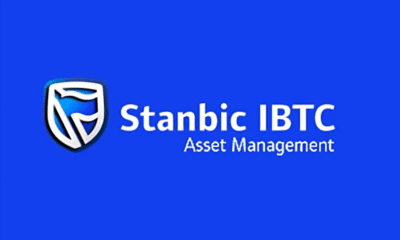Crypto NEWS
“Is Hong Kong About to Make Bitcoin a Strategic Reserve? This Bold Proposal Could Change Global Finance!”

Hong Kong Legislator Pushes for Bitcoin to Join National Reserves
In a bold move to bolster Hong Kong’s financial security, legislator Wu Jiexhuang has proposed leveraging the city’s “one country, two systems” framework to include Bitcoin in the national reserves. This ambitious idea seeks to cement Bitcoin’s role as a strategic asset, positioning Hong Kong at the forefront of a global financial transformation.
Bitcoin as a Strategic Asset: A Global Shift
Speaking with Hong Kong’s state-owned Wen Wei Po newspaper, Wu Jiexhuang highlighted the growing global trend of nations and regions integrating Bitcoin into their reserves. Citing examples from El Salvador and Bhutan, both of which have made Bitcoin part of their national treasury, Wu suggested Hong Kong should study the impact of U.S.-based Bitcoin exchange-traded funds (ETFs) as a first step toward adopting Bitcoin as part of its own financial arsenal.
“Bitcoin’s growing acceptance globally is a sign of its future role in global finance,” Wu said. “If major economies, like the U.S., decide to classify Bitcoin as a strategic reserve asset, this could stabilize its value and encourage others to follow.”
Bitcoin ETFs as a Gateway to National Reserves
Wu’s proposal isn’t just a leap of faith into uncharted territory. He suggests that Hong Kong authorities should first explore the inclusion of Bitcoin in ETFs—exchange-traded funds that offer a regulated, market-friendly vehicle for investors to access Bitcoin without holding the cryptocurrency directly.
By first introducing Bitcoin in ETFs, Wu argues that Hong Kong can gain valuable insights into the broader impact of Bitcoin on the financial ecosystem, attracting investment and talent. This, in turn, could bolster the city’s standing as a global financial hub while stabilizing Bitcoin’s role as an asset class.
“The ETF approach would be a crucial first step,” Wu explained. “It’s a risk-managed way of incorporating Bitcoin into Hong Kong’s financial strategy, which can lead to more confidence in holding Bitcoin as part of our reserves.”
The Value of Bitcoin in National Reserves
Wu’s ultimate goal is to include Bitcoin directly in the city’s national reserves, alongside traditional assets like gold and foreign currencies. The rationale behind this? As more countries adopt Bitcoin, its value will stabilize, reducing the volatility that has often been a barrier to its broader adoption.
“If major economic powers include Bitcoin in their strategic reserves,” Wu noted, “its value will stabilize, creating a positive feedback loop where others follow suit.”
This vision is similar to the long-term goals of Bitcoin advocates, who see the cryptocurrency as an alternative to traditional reserve assets. Bitcoin, Wu argues, could play a pivotal role in reducing reliance on traditional assets like U.S. dollars, gold, and sovereign bonds, making it a critical tool in diversifying financial reserves and protecting against inflation.

Hong Kong’s Regulatory Push: A Double-Edged Sword
Despite Wu’s optimistic outlook, Hong Kong’s regulatory landscape remains a significant challenge. The city’s Financial Services and the Treasury Bureau has committed to regulating cryptocurrencies under the principle of “same business, same risks, same rules,” but critics argue that the pace of regulatory approvals has been slow.
In 2024, only seven cryptocurrency platform licenses were issued in Hong Kong, and many prominent exchanges, including OKX and Bybit, have withdrawn their applications, citing regulatory hurdles and the lack of clarity on how the city will handle cryptocurrencies.
Hong Kong’s more restrictive licensing system—requiring platforms to operate only with highly liquid assets like Bitcoin and Ether—also limits opportunities for broader market engagement, especially for smaller altcoins. Additionally, China’s blanket ban on cryptocurrency trading compounds the challenges, casting a long shadow over Hong Kong’s crypto ambitions.
Singapore’s Crypto Licensing: A Lesson for Hong Kong?
Across the water in Singapore, the crypto regulatory landscape is moving at a faster pace. In 2024 alone, the city-state issued 13 cryptocurrency licenses, including to major players such as OKX, Upbit, and BitGo. This swift and favorable regulatory environment has made Singapore an attractive destination for crypto firms, putting Hong Kong’s slower pace under the microscope.
Critics argue that Hong Kong risks losing its competitive edge in the crypto space unless it reforms its regulatory framework. The Hong Kong Legislative Council has already received vocal criticism regarding the city’s crypto licensing system, with some lawmakers pointing to the impact on market confidence.
Conclusion: Could Hong Kong Be Left Behind?
Wu Jiexhuang’s push to incorporate Bitcoin into Hong Kong’s financial reserves represents an ambitious and forward-thinking vision for the city’s future. Yet, with regulatory challenges and competition from other financial hubs like Singapore, it remains to be seen whether Hong Kong can seize this opportunity.
As Bitcoin continues to gain traction on the global stage, the question for Hong Kong isn’t whether to join the movement, but how quickly it can adapt to the changing financial landscape. If Hong Kong acts quickly, it could emerge as a leader in cryptocurrency integration; however, if regulatory challenges continue to slow progress, it might risk being left behind in the global race to embrace Bitcoin.




















